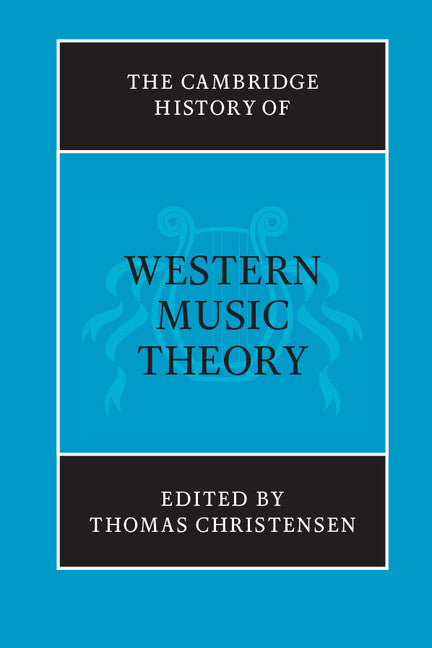Freshly Printed - allow 8 days lead
Couldn't load pickup availability
The Cambridge History of Western Music Theory
The first comprehensive history of Western music theory to be published in the English language.
Thomas Christensen (Edited by)
9780521686983, Cambridge University Press
Paperback, published 20 April 2006
1024 pages, 35 b/w illus.
22.6 x 15 x 5.8 cm, 1.34 kg
This remarkable book not only offers the reader a detailed account of the entire history of theoretical writing about Western music from the ancient Greeks to modern times, but also provides an incisive critique of the original objectives and ultimate significance of such writing. The various contributors are all specialists well able to encapsulate as well as clarify the essence of complex materials. In addition, the excellent selection of plates, tables and examples, coupled with comprehensive bibliographies, provides rich and vivid contexts for subject-matter that is never merely abstract, but satisfyingly linked to the particulars of musical works. All teachers, researchers and students who take music seriously will find The Cambridge History of Western Music Theory enormously stimulating.--Arnold Whittall, Professor Emeritus of Music Theory & Analysis, King's College London
The Cambridge History of Western Music Theory is the first comprehensive history of Western music theory to be published in the English language. A collaborative project by leading music theorists and historians, the volume traces the rich panorama of music-theoretical thought from the Ancient Greeks to the present day. Recognizing the variety and complexity of music theory as an historical subject, the volume has been organized within a flexible framework. Some chapters are defined chronologically within a restricted historical domain, whilst others are defined conceptually and span longer historical periods. Together the thirty-one chapters present a synthetic overview of the fascinating and complex subject that is historical music theory. Richly enhanced with illustrations, graphics, examples and cross-citations as well as being thoroughly indexed and supplemented by comprehensive bibliographies of the most important primary and secondary literature, this book will be an invaluable resource for students and scholars alike.
Introduction Thomas Christensen
Part I. Disciplining Music Theory: 1. Mapping the terrain Leslie Blasius
2. Musica practica: music theory as pedagogy Robert W. Wason
3. Epistemologies of music theory Nicholas Cook
Part II. Speculative Traditions: 4. Greek music theory Thomas J. Mathiesen
5. The transmission of ancient music theory into the Middle Ages Calvin Bower
6. Medieval canonics Jan Herlinger
7. Tuning and temperament Rudolf Rasch
8. The role of harmonics in the scientific revolution Penelope Gouk
9. From acoustics to tonpsychologie Burdette Green and David Butler
10. Music theory and mathematics Catherine Nolan
Part III. Regulative Traditions: 11. Notes, scales, and modes in Carolingian thought David Cohen
12. Renaissance modal theory: theoretical, compositional and editorial perspectives Cristle Collins Judd
13. Tonal organization in seventeenth-century music theory Gregory Barnett
14. Dualist tonal space and transformation in the nineteenth century Henry Klumpenhouwer
15. Organum, diaphonia, discantus, contrapunctus in the Middle Ages Sarah Fuller
16. Counterpoint pedagogy in the Renaissance Peter Schubert
17. Performance theory Albert Cohen
18. Steps to Parnassus: contrapuntal theory in 1725: precursors and successors Ian Bent
19. Twelve-tone theory John Covach
20. The evolution of rhythmic notation Anna Maria Busse Berger
21. Theories of musical rhythm in the eighteenth and nineteenth centuries William Caplin
22. Rhythm in twentieth-century theory Justin London
23. Tonality Brian Hyer
24. Rameau and eighteenth-century harmonic theory Joel Lester
25. Nineteenth-century harmonic theory: the Austro-German legacy David W. Bernstein
26. Heinrich Schenker William Drabkin
Part IV. Descriptive Traditions: 27. Music and rhetoric Patrick McCreless
28. Form Scott Burnham
29. Thematic and motivic analysis Jonathan Dunsby
30. Energetics Lee Rothfarb
31. The psychology of music Robert Gjerdingen.
Subject Areas: Western "classical" music [AVGC], Theory of music & musicology [AVA]


